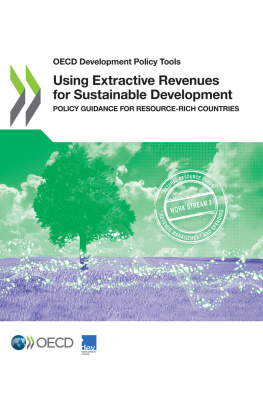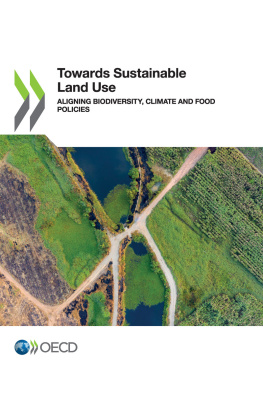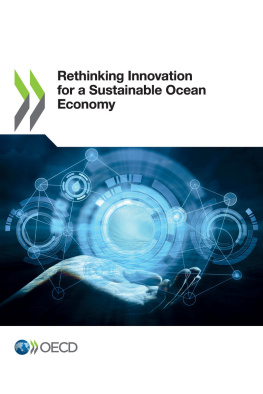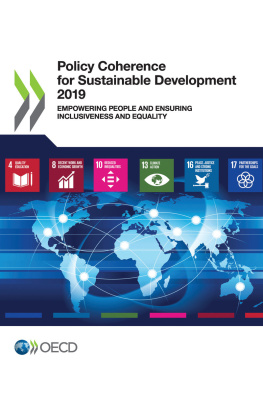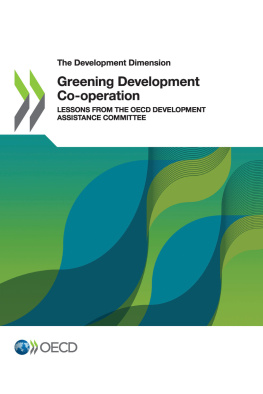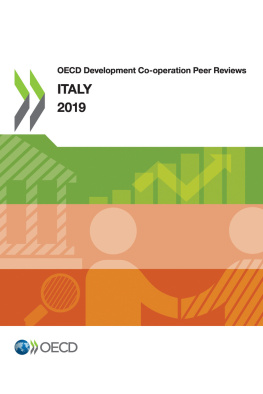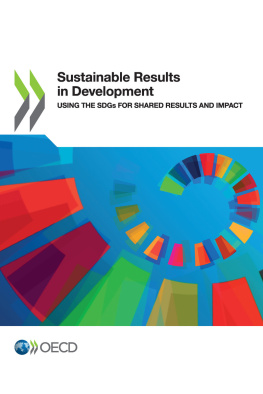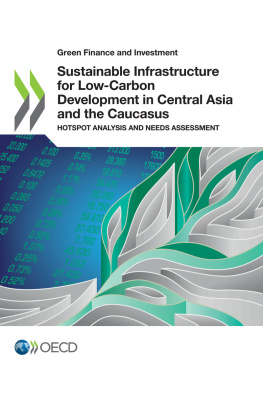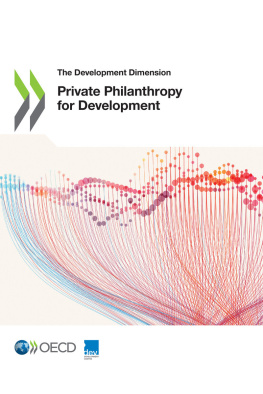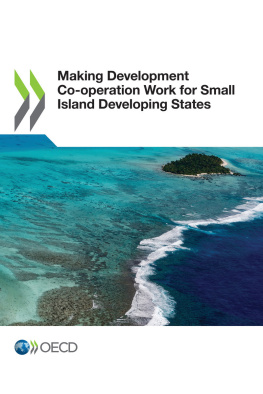OECD - Using Extractive Revenues for Sustainable Development
Here you can read online OECD - Using Extractive Revenues for Sustainable Development full text of the book (entire story) in english for free. Download pdf and epub, get meaning, cover and reviews about this ebook. year: 2019, publisher: OECD Publishing, genre: Politics. Description of the work, (preface) as well as reviews are available. Best literature library LitArk.com created for fans of good reading and offers a wide selection of genres:
Romance novel
Science fiction
Adventure
Detective
Science
History
Home and family
Prose
Art
Politics
Computer
Non-fiction
Religion
Business
Children
Humor
Choose a favorite category and find really read worthwhile books. Enjoy immersion in the world of imagination, feel the emotions of the characters or learn something new for yourself, make an fascinating discovery.
Using Extractive Revenues for Sustainable Development: summary, description and annotation
We offer to read an annotation, description, summary or preface (depends on what the author of the book "Using Extractive Revenues for Sustainable Development" wrote himself). If you haven't found the necessary information about the book — write in the comments, we will try to find it.
OECD: author's other books
Who wrote Using Extractive Revenues for Sustainable Development? Find out the surname, the name of the author of the book and a list of all author's works by series.
Using Extractive Revenues for Sustainable Development — read online for free the complete book (whole text) full work
Below is the text of the book, divided by pages. System saving the place of the last page read, allows you to conveniently read the book "Using Extractive Revenues for Sustainable Development" online for free, without having to search again every time where you left off. Put a bookmark, and you can go to the page where you finished reading at any time.
Font size:
Interval:
Bookmark:
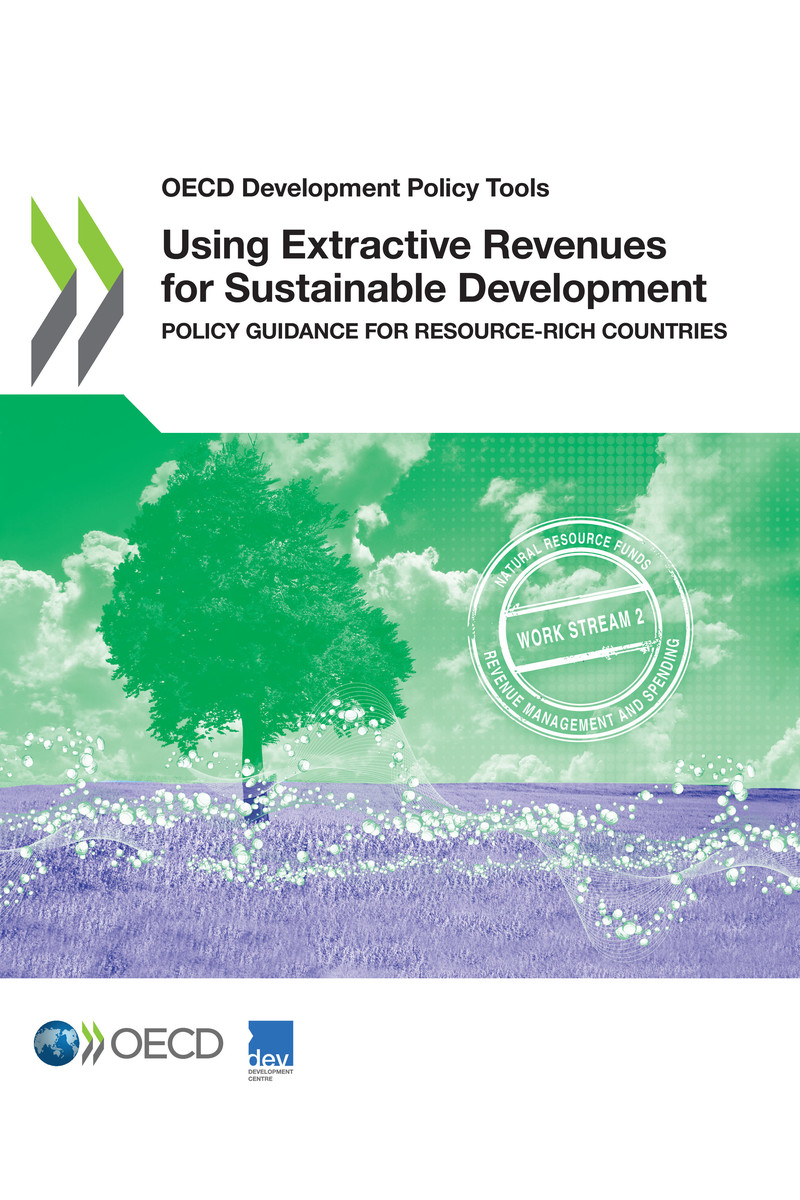
OECD (2019), Using Extractive Revenues for Sustainable Development : Policy Guidance for Resource-rich Countries , OECD Development Policy Tools, OECD Publishing, Paris, https://doi.org/10.1787/a9332691-en .
This report was prepared by the OECD Development Centre within the framework of the Policy Dialogue on Natural Resource-based Development. It was welcomed by participants in the Eleventh Plenary of the Policy Dialogue on Natural Resource-based Development held on 12-13 December 2018 at the OECD in Paris.
This report rationalises the analysis developed for the Policy Dialogues Work Stream 2 on Revenue Management and Spending between 2015-2018, also building on the lessons learned from the knowledge-sharing and peer-learning exercise in relation to the management and mobilisation of natural resource revenues to support the 2030 Agenda for Sustainable Development.
The first part of the report discusses key principles of the management of natural resource revenues for a sustainable budget. The second part discusses mechanisms for the mobilisation of natural resource revenues for sustainable development. The report concludes with recommended policy responses to key identified revenue management and spending challenges.
Non-renewable natural resource revenues can make an important contribution to harnessing inclusive growth and sustainable development, provided that resource revenues are appropriately managed to smooth revenue flows throughout the price cycle and effectively spent domestically to transform finite natural resource revenues into long-standing and productive development gains. Since 2013, the OECD Development Centres Policy Dialogue on Natural Resource-based Development has fostered peer-learning and experience sharing on trade-offs, advantages and disadvantages of natural resource revenue management and spending mechanisms to use natural resource revenues to support the implementation of the 2030 Sustainable Development Agenda, drawing lessons from country experiences. The first challenge for policy makers is to reconcile long-term development and intergenerational equity objectives with the need to manage the volatility and uncertainty of exhaustible resource revenues. The establishment of a clear and consistent fiscal policy framework coupled with a commitment to sound macroeconomic management of natural resource revenues with properly sized stabilisation funds can help to insulate the economy from price, production or other external shocks and ensure medium- and long-term fiscal sustainability that supports long-term development objectives. In order to achieve the desired objectives, stabilisation funds need to be integrated into the budget through clear rules regarding the deposit of natural resource revenues, and the withdrawal of money for use in government spending and investment. Stabilisation funds provide a financial buffer when commodity markets collapse and revenues from natural resources decline. The investment management and governance of stabilisation funds need to support their budget stabilisation objectives. This means designing stabilisation funds to be fit for purpose with adequate human resourcing in relation to the level of risk taken to achieve their policy objectives, investment decision making that is free from political influence, and clear mechanisms providing transparency and accountability. As a source of precautionary savings, stabilisation funds should be invested in safe foreign assets to ensure sufficient liquidity to counter price volatility. Stabilisation funds are not effective vehicles for helping satisfy domestic capital needs, particularly in capital-starved developing economies where domestic assets are likely to be highly correlated with commodity prices given the structure of resource-dependent economies. Beyond the appropriate level of precautionary savings necessary to provide a financial buffer to ensure fiscal sustainability over time, resource-rich countries need to manage the trade-off between investing in the domestic economy or abroad, and saving for future generations. The country-specific development needs and circumstances should be reflected in how this trade-off is managed. The fiscal rules can be designed to favour current and medium-term expenditure of natural resource revenues or accumulate wealth for future generations in a savings fund in a manner that is consistent with national priorities and absorptive capacity constraints. When prioritising domestic investment, spending mechanisms that encourage procyclicality in public expenditures should be avoided as this exacerbates the effects of commodity price volatility on the economy. Earmarking can encourage procyclicality and constrain budgetary flexibility, leading to inefficiency and over or underinvestment in certain public services. Without concomitant stabilisation mechanisms, direct distribution through cash transfers is also highly procyclical and may divert revenues from priority investments at scale such as in infrastructure, health, and education. At the same time, targeted cash-transfer schemes that operate through the government budget may be useful to smooth the transition for gradually phasing out fossil fuel subsidies, which tend to be poorly targeted and inefficient, yet popularly supported and thus often difficult to reform. Policy makers need to ensure the quality and efficiency of public investment spending to translate natural resource wealth into productive capital accumulation, leading to broader development gains. Strategic investment funds can help natural resource-rich countries manage long-term financing challenges and shrinking fiscal space, while balancing policy and commercial objectives. This can be done by leveraging private capital to kick-start productive growth and development, through reinforcing, renewing and reorganising state assets, crowding-in investments, catalysing new economic opportunities and supporting local financial-market development. With their double bottom-line objective, whereby all investment decisions must fulfil market-based risk and return criteria, and produce positive development outcomes, strategic investment funds offer a possible tool for resource-rich countries to catalyse economic development, alongside conventional spending via the budget. Such funds are most effective as part of a clear government investment policy that establishes the priorities, criteria and targets for investment, coupled with some level of co-ordination across government levels and different agencies to avoid duplication of public investment. Effectiveness is also supported by the capacity to build a professional and capable investment team to further scrutinise the financial and economic feasibility and sustainability of public investment projects, coupled with adherence to accepted standards of disclosure and transparency. However, experience with such funds in developing countries is still limited.
Font size:
Interval:
Bookmark:
Similar books «Using Extractive Revenues for Sustainable Development»
Look at similar books to Using Extractive Revenues for Sustainable Development. We have selected literature similar in name and meaning in the hope of providing readers with more options to find new, interesting, not yet read works.
Discussion, reviews of the book Using Extractive Revenues for Sustainable Development and just readers' own opinions. Leave your comments, write what you think about the work, its meaning or the main characters. Specify what exactly you liked and what you didn't like, and why you think so.

